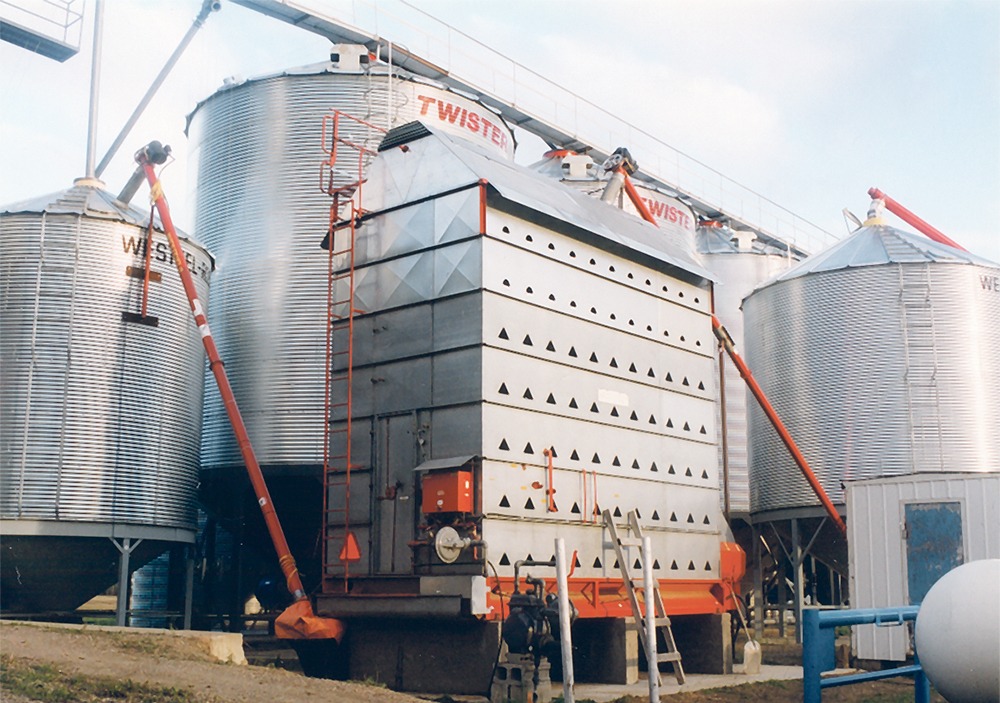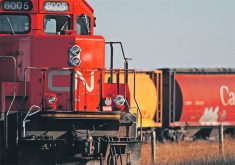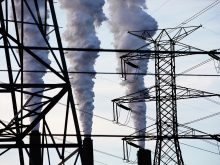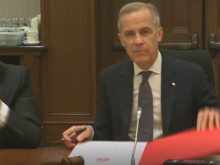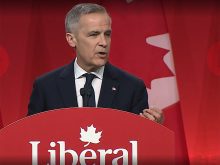Despite voting against a new law to exempt certain farm fuels from the carbon tax, the federal government says relief for grain drying is coming.
On Feb. 25, Bill C-206, An Act to amend the Greenhouse Gas Pollution Pricing Act (qualifying farming fuel), got a step closer to becoming law after receiving second reading and being forwarded to committee for review.
It got to that point without support from the governing Liberals, save for one member (Francis Drouin of Glengarry-Prescott-Russell).
Introduced by Conservative MP Philip Lawrence for the first-time last February, each of the opposition parties supported the bill. Members of the, Bloc Quebecois, Green Party and NDP all joined the Conservatives in voting for the bill to move to committee.
Read Also

Farming Smarter receives financial boost from Alberta government for potato research
Farming Smarter near Lethbridge got a boost to its research equipment, thanks to the Alberta government’s increase in funding for research associations.
Before the vote was held, agriculture minister Marie-Claude Bibeau and environment and climate change minister Jonathan Wilkinson released a joint statement signalling their intentions.
They said Bill C-206 “does not provide relief for the fuel costs of grain drying, as it does not add grain drying as an eligible farming activity.”
Contention over the bill’s text was part of the debate MPs held in the House before voting on it, and Lawrence was firm in his assertion his law would exempt grain drying.
Rather than pass a bill introduced by an opposing member, the Liberals are signalling an intention to introduce their own bill offering relief to farmers drying grain.
“We are committed to new rebates for on-farm fuel use such as grain drying, in order to both support our food producers and also encourage new investments in sustainable technologies, that go beyond existing exemptions for farm fuels and rebates for greenhouses,” said the statement from the ministers.
“In addition, our government will make grain drying and barn heating a priority focus under the new $165 (million) agriculture clean technology fund. The program will invest in energy efficiency, fuel switching, and other new technologies on farms. This program will be announced in the coming months.”
No further details or specific timelines were offered.
Facing scrutiny for the high cost experienced during a particularly wet harvest last year, Bibeau avoided making any commitments. Instead she defaulted to a favoured position: requesting more information on the matter.
While the Liberals deliberate their own plan to relieve farmers of grain drying costs, there will be continued industry support for Bill C-206.
The momentum of Lawrence’s bill, coupled with the Liberals new, albeit vague, commitment, should ensure farmers will be getting some form of relief from grain drying — but when is still unclear.
Bill C-206 getting to committee marks the half-way point in a six-stage process of a bill becoming law, but there is a long road ahead to it coming into force.
If Parliament doesn’t prorogue first, the standing committee on agriculture and agri-food will hear testimony from stakeholders in and outside of government before reporting back findings and possible amendments to the House of Commons.
The bill would die on the floor, and have to be re-introduced a third time if government rises and the current parliamentary session ends before its passage — a looming threat in any minority government situation. This scenario would essentially mean the bill goes back to its infancy, and the process of its passage would begin again.
Last year, federal officials told a committee of MPs that an Agriculture Canada internal analysis suggests costs of grain drying are “a fairly small share of overall costs.”
While the analysis has not been made available to the public, officials say grain drying costs typically represent only one to two per cent of total costs for producers.
Provinces and provincial producer groups have put forward numbers suggesting carbon taxes — including when added to grain drying — account for a significantly higher amount of overall costs, but Agriculture Canada officials suggest those figures factored in indirect costs, resulting in a higher estimate.
An evaluation of grain drying costs provided by some provincial governments or producer groups was done in 2019 by Agriculture Canada. The results don’t represent the department’s estimates, and instead represent a standard set of results from different groups to offer comparable results.
That report found, “based on the information received, the average per-farm cost of pollution pricing associated with grain drying by province ranges from 0.05 percent to 0.38 percent of net operating costs for an average farm, equivalent to $210 to $774, depending on the province in question.”
Grain Growers of Canada chair Andre Harpe said Canada’s grain farmers desperately need a carbon tax exemption, particularly in years when propane and natural gas are used to dry tough or damp grain.
“With no alternative fuels available, we are faced with a punitive cost when using a grain dryer to reduce the moisture levels in our grain,” Harpe said.
“Without proper drying when faced with wet conditions and adverse weather, the grain will spoil, and we will not be able to take our product to market.”
“Estimates vary from farm to farm but some farmers have paid over $10,000 in carbon tax on their grain drying bill,” added Gunter Jochum, president of the Western Canadian Wheat Growers Association.
The federal carbon tax scheduled is currently set at $30 per tonne of carbon dioxide equivalent (C02e) but is scheduled to increase to $40 a tonne in April and $170 a tonne by early 2030.
Failure by the federal government to exempt propane and natural gas would present “serious challenges to the stability of the family farm,” the WCWGA said.
Prior to last week’s parliamentary vote, NDP agriculture critic Alastair MacGregor said his party would support the bill.
“Despite the advances that we have made and the potential that good agricultural practices offer in the fight against climate change, it is still an inescapable fact that farmers today depend on fossil fuels. This is especially true when it comes to drying grain,” MacGregor said.
“As it stands, there are currently no viable alternatives to the use of propane and natural gas for the operation of … (grain) dryers.”
It’s not exactly clear how much the tax exemptions proposed in Bill C-206 would save Canadian farmers. However, for a large farming operation that produces grains and oilseeds, the savings could easily amount to tens of thousands of dollars annually, according to some industry estimates.
The Agricultural Producers Association of Saskatchewan has estimated that if carbon taxes are collected on grain drying operations, production costs on a typical grain farm would by $1.04 per acre in 2021, rising to $4.44 per acre by 2030.
It remains to be seen if the bill will to fuels used to heat farm buildings.
Lawrence didn’t rule out the possibility but said expanding the scope of the bill to include farm heating costs could potentially result in the loss of support from other political parties.
The carbon tax collected on propane and natural gas used to heat barns, machine shops and other farm buildings represents a significant cost for many producers.
John Barlow, a Conservative MP from Alberta’s Foothills constituency, said the owner of a large poultry farm in his riding currently pays more than $50,000 a year in carbon taxes to heat his poultry barns.
“When the carbon tax in 2022 goes to $50 a tonne, that $50,000 … will be close to $100,000 a year,” Barlow said in the House of Commons.
“We are not talking nickels and dimes here. We are talking about the difference between ensuring this operation is viable or going bankrupt.”
APAS president Todd Lewis said a decision to exempt on-farm consumption of propane and natural gas would provide significant financial relief to grain growers and livestock producers in Saskatchewan.
The fact that Bill C-206 passed second reading and had support from MPs across the political spectrum is cause for optimism, he added.
Lewis said he is pleased that Ottawa has finally indicated that it’s willing to some kind of take action on the farm carbon tax file.
A year or two ago, a lot of federal MPs didn’t know what a grain dryer was, he said.
Now there’s a realization that grain drying is a routine activity on most western Canadian farms.
“We’re finally getting some traction on this issue,” Lewis said.
“We’ve been lobbying right from the start on this. When carbon tax prices were first put in place, we recognized this as a significant cost for producers….”
“We’re certainly hoping to see, either from this bill or (from a federal) rebate program that … these costs no longer going to be passed on to producers.”



